Dr. Hussam Abu Safiya, a ‘hero in scrubs’ saving lives amid genocidal war on Gaza
By Alireza Akbari
Despite losing his young son, sustaining severe injuries, and facing constant threats, Dr. Hussam Abu Safiya stood firm and refused to abandon his hospital and patients.
Since Friday, however, following an Israeli military raid on the Kamal Adwan Hospital—northern Gaza's last functioning medical facility—the whereabouts of Dr. Safiya and his medical staff remain unknown.
The Israeli occupation forces detained the hospital director and other medical personnel, subjecting them to humiliating treatment, including being ordered to strip at gunpoint.
At the time of the raid, at least 350 people were present in the hospital, including 180 medical workers and 75 critically injured patients, according to the Gaza-based Government Media Office.
Kamal Adwan Hospital is now "empty," with all patients, including the critically ill, and healthcare workers transferred to the Indonesian Hospital in Beit Lahiya, the World Health Organization (WHO) reported on Saturday, condemning the military crackdown.
The UN body said that “the systematic dismantling of the health system in Gaza is a death sentence for tens of thousands of Palestinians in need of health care.”
“This horror must end and health care must be protected. Ceasefire,” it asserted.
Euro-Med Human Rights Monitor in a statement cited harrowing testimonies given by witnesses that nurses, patients, and their companions were subjected to acts of sexual violence at the hospital.
Israeli soldiers, the Geneva-based rights group said, forced women and girls to remove their clothing under threats, insults, and offensive slurs targeting their honor and dignity.
Several women and girls also reported being sexually harassed, said the rights group.
All those who were present inside the hospital at the time of the Israeli military raid -- doctors and patients -- were arrested, including Dr. Abu Safiya.
“We do not know the fate of Dr. Hussam. He was threatened by the (Israeli) army as soon as they arrived,” a nurse at the hospital was quoted as saying.
An image of the Palestinian doctor in white robes walking through the ruins outside his hospital in Beit Lahiya has been circulating on social media, reportedly taken moments before his arrest.
"The humanity, life & healing just in the fingertip of Dr Hussam Abu Safiya, compared to the Israelis perpetrating genocide against Palestinians or those cheering it on," Joseph Willits, a London-based activist wrote on X, formerly Twitter, on Sunday.
"The last known image of him facing Israeli tanks that destroyed Kamal Adwan hospital in Gaza before arrest," he added, sharing the viral photo.
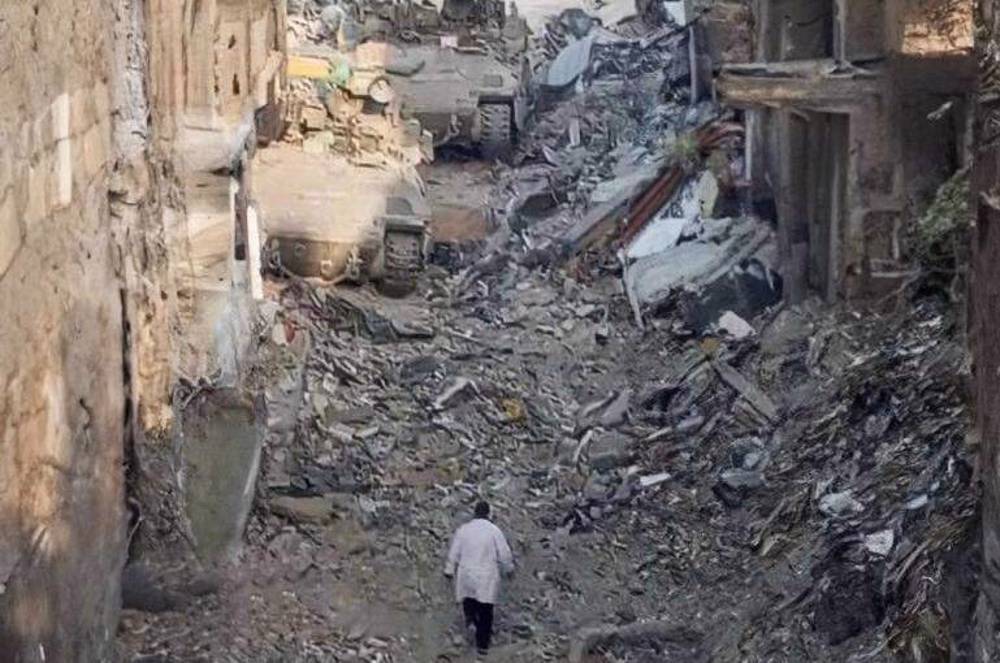
'Free Dr. Abu Safiya' campaign
A campaign for his release has gained momentum with resistance groups, human rights activists and medical associations in Gaza and beyond calling for his immediate release.
“Dr. Hussam Abu Safia stands as one of the most honorable examples of resilience, embodying its noblest form. Like the roots of Palestine’s olive trees, older than Israel’s entire existence, Dr. Hussam represents steadfastness,” Martyrs of Gaza wrote in a post on X, formerly Twitter.
“Abducting doctors is a war crime, and silence in the face of such crimes is an even greater offense.”
"The last photo of Dr. Hussam Abu Safiya, detained after refusing to abandon his colleagues and patients. In just one image, we see both the power of Palestinian humanity and the moral weakness of all those complicit in genocide. End all arms sales to Israel, now," wrote former UK Labor leader Jeremy Corbyn, sharing the image of the Palestinian doctor walking through the rubble.
Dr. Abu Safiya’s unyielding commitment to his patients, even in the face of grave personal and professional danger, has earned him the admiration of all and sundry across the world.
On Saturday, the Israeli military announced it had detained Dr. Safiya, accusing him of being a "suspected Hamas terrorist operative and claiming the hospital was a "Hamas terror stronghold."
These allegations were swiftly rejected by Hamas, which issued a statement, urging the United Nations and international institutions to intervene.
“We demand the sending of international observers to these facilities to ascertain the truth of what is happening and to refute the lies and claims of the occupation regarding their use for military purposes,” read the Hamas statement.
"The continued targeting and systematic destruction of all medical facilities and hospitals by the criminal Zionist occupation army, the latest of which was the burning and destruction of Kamal Adwan Hospital in the northern Gaza Strip, places a historical responsibility on the United Nations and the international community for their failure to stop the war of extermination and ethnic cleansing against the Palestinian people," it added.
The Israeli occupation previously targeted other hospitals in the Gaza Strip on similar bogus claims of connections with Hamas, which were never proven, say activists.
Dr. Abu Safiya had earlier posted on social media that Israeli forces were besieging the hospital and issuing evacuation orders. The staff and patients were ordered to leave the facility and gather outside.
Since October 2023, Kamal Adwan Hospital has been repeatedly attacked by the Israeli military, yet Dr. Abu Safiya and his colleagues have refused to evacuate and vowed to keep the hospital operational.
Dr. Hussam Abu Safiya, the director of Kamal Adwan Hospital, stated that despite the relentless Israeli shelling on the ICU, maternity, and neonatal departments, the hospital is still providing care for over 80 patients.
— Palestine Highlights (@PalHighlight) December 23, 2024
Follow Press TV on Telegram: https://t.co/fvRn3Kv8f4 pic.twitter.com/KRduIex2ci
Grief and steadfastness
Dr. Abu Safiya has paid a personal cost as well amid the ongoing genocide. His 15-year-old son, Ibrahim, was killed in an Israeli drone strike at the hospital entrance in late October.
In a show of exemplary patience and strength, the doctor, clad in his white scrubs, stood over his son’s lifeless body and led his funeral prayers with tears streaming down his face as he prayed.
Dr. Abu Safiya buried his son near the hospital wall so his son could remain close to him in spirit.
“I refused to leave the hospital and sacrifice my patients, so the army punished me by killing my son,” Dr. Abu Safiya told journalists who reached out to him regarding the situation at the besieged hospital.
In October 2024, amidst the siege of northern Gaza, Israeli forces ordered the complete evacuation of Kamal Adwan Hospital within 24 hours. However, Dr. Abu Safiya refused to comply.
“We have babies and newborns in the ICU. Even if we can evacuate a few patients, we cannot leave the hospital because there is no other facility offering treatment to children,” he stated at the time.
"There are more than 15 cases that need surgeries that we cannot perform here."
The iconic Palestinian doctor stood firm and defied threats to continue treating the wounded.
"The Israeli army detained me and demanded that I evacuate the hospital,” he told journalists.
“I refused and assured them that there were only patients inside. But they arrested 57 staff members, leaving us with a severe shortage of doctors, especially surgeons. Now, only I and one other pediatrician remain."
On December 6, 2024, the Israeli military intensified its attack, launching a series of airstrikes on the northern and western sides of the hospital, followed by heavy gunfire.
Condemnations continue following Israeli strikes on Gaza’s Kamal Adwan hospital, with Iran, the OIC, and the UN denouncing the attacks as war crimes intended to dismantle Gaza’s health system. pic.twitter.com/n6fyXPT8Tj
— Press TV 🔻 (@PressTV) December 28, 2024
Who is Dr. Hussam Abu Safiya?
Dr. Abu Safiya is a Palestinian doctor and human rights advocate residing in northern Gaza.
He serves as the director of Kamal Adwan Hospital, which was one of the last functioning medical facilities in the territory and was shut down earlier this month after the months-long siege.
Amid the genocide, he steadfastly refused to evacuate the hospital despite orders from the Israeli military, fearing that leaving his patients would be a betrayal of his medical oath.
On October 25, 2024, Dr. Abu Safiya’s resilience was tragically tested when Israeli forces stormed the hospital, bombing its buildings and detaining both patients and staff.
The killing of his son was a big personal setback for him but he refused to be cowed down.
“I refused to leave the hospital and sacrifice my patients, so the army punished me by killing my son. I saw him die at the entrance gate — it was a great shock. I found a grave for him near one of the hospital’s walls, so that he could stay close to me,” he was quoted as saying at the time.
Dr. Abu Safiya’s dedication to his patients, even in the face of immense personal loss, has cemented his place as a symbol of sacrifice, resilience, and defiance against the Israeli genocide and apartheid.
Sunday marked the 450the day of the genocidal war against Palestinians in the Gaza Strip, with at least 45,514 people killed and 108,189 others injured, most of them children and women.
Nearly 10,000 massacres have been committed during this period, according to Gaza Media Office.
'Capitulation': Israeli officials and media concede Gaza defeat as truce unfolds
'Gaza has won': Social media users react to ceasefire with mix of relief, joy
Iran seeks South Korea’s assistance for AI, fiber-optic projects
VIDEO | Iran's 'Eqtedar' (Power) maneuver
Israel hits HTS military target in Syria for 1st time since fall of Assad
VIDEO | Press TV's news headlines
Israel has slaughtered 13,000 students in Gaza, West Bank
VIDEO | More Zionist than Zionists: Biden’s legacy to be defined by Gaza genocide


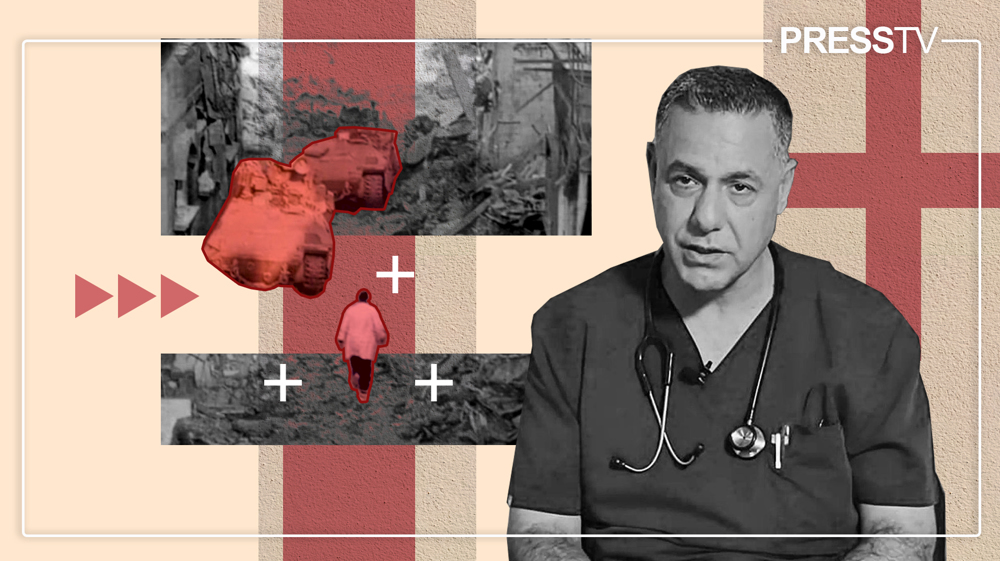
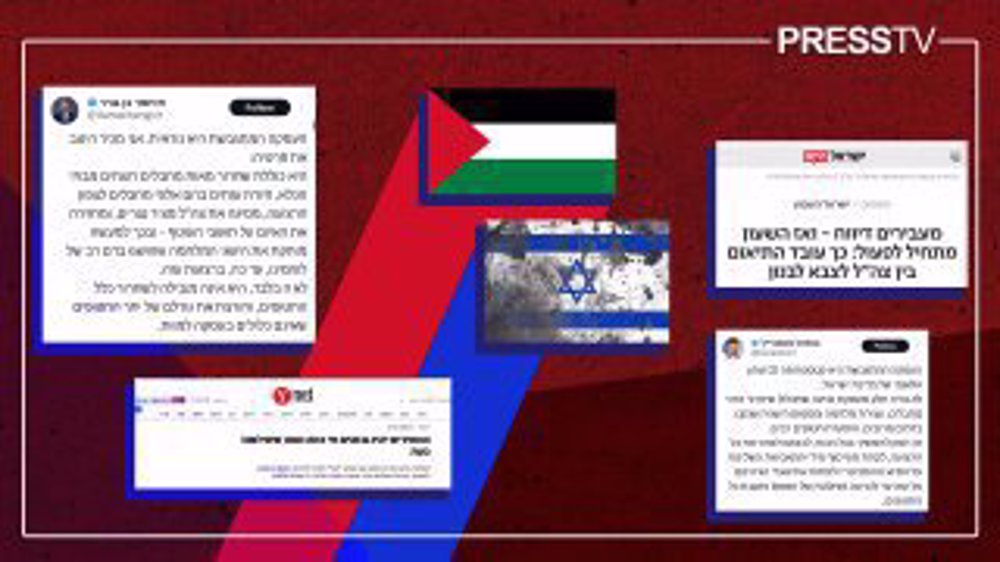
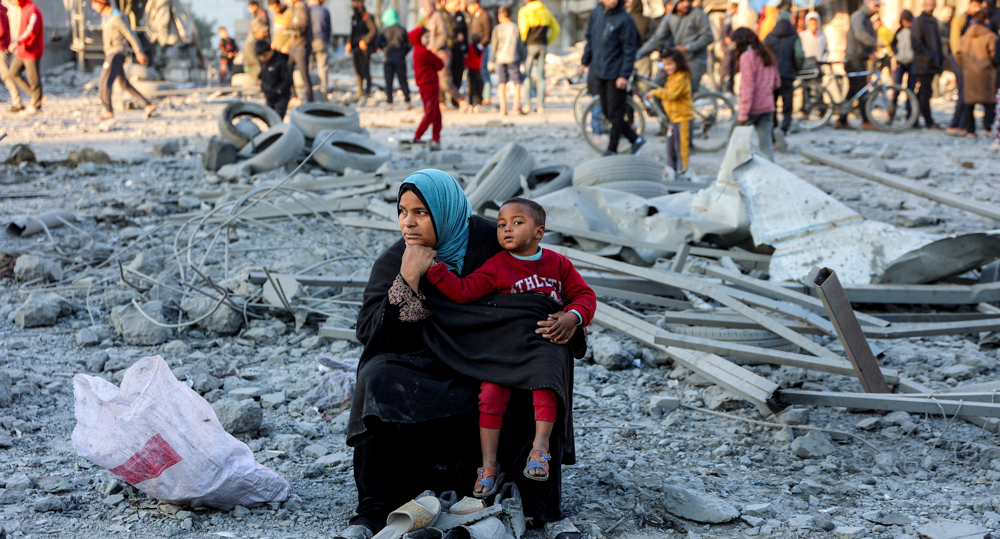
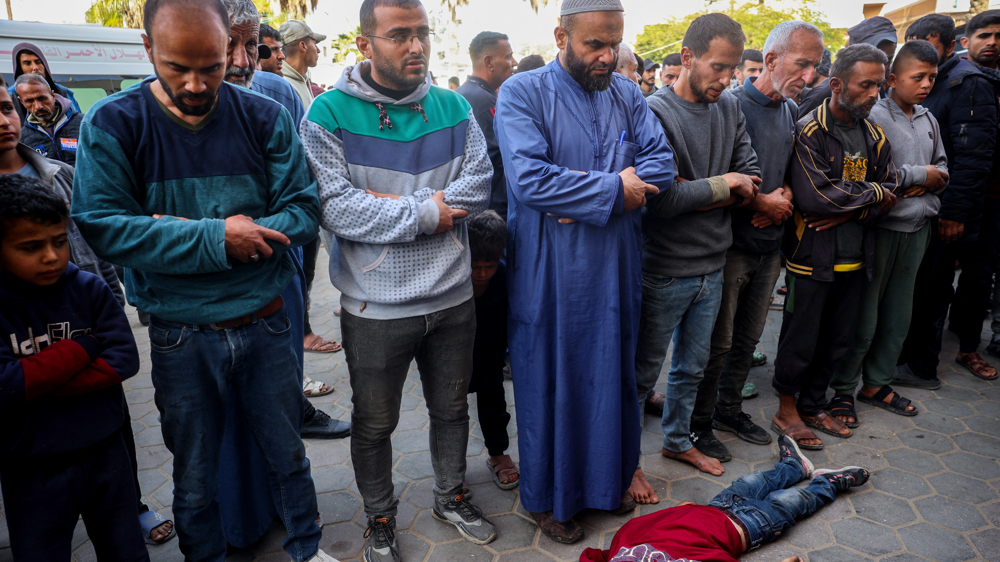



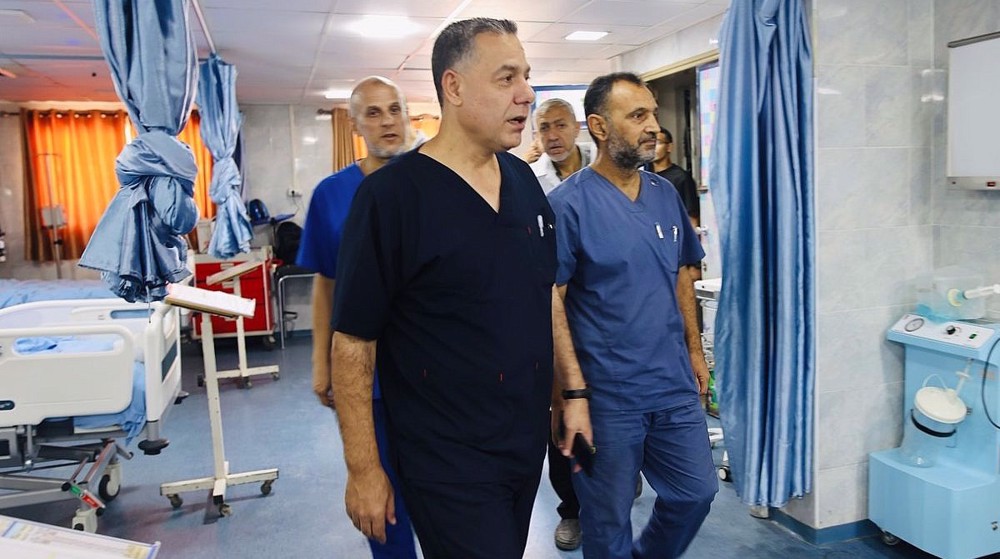
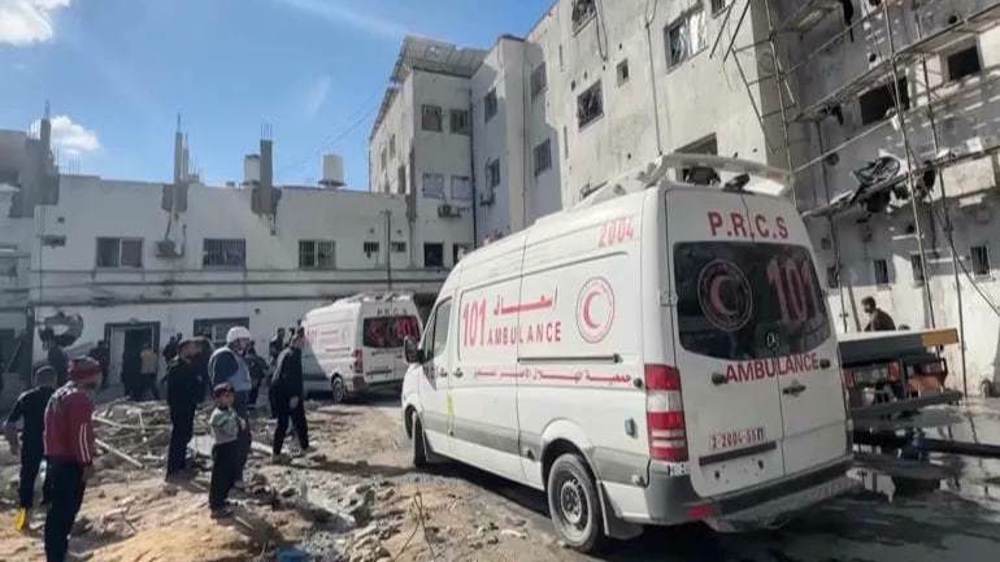

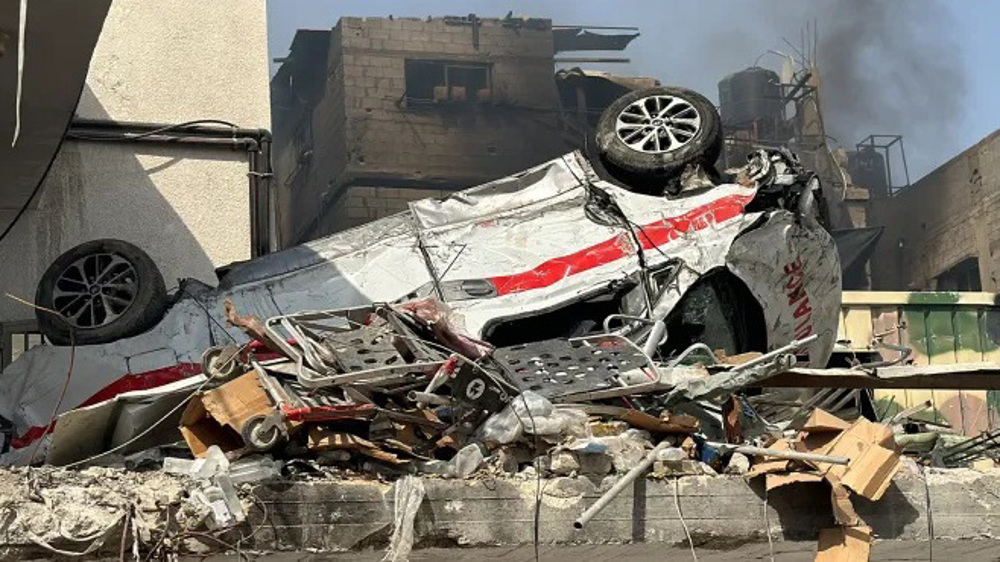
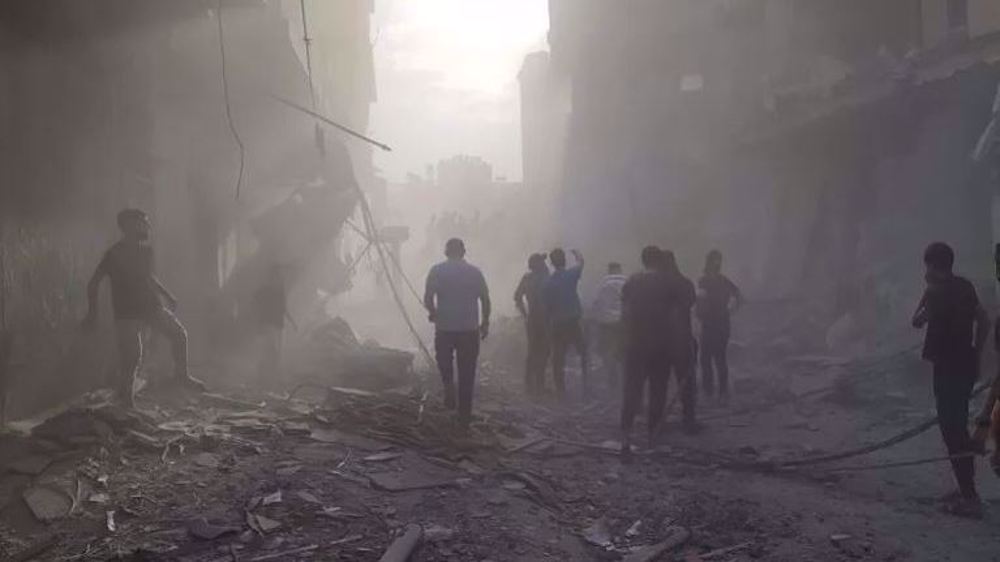

 This makes it easy to access the Press TV website
This makes it easy to access the Press TV website